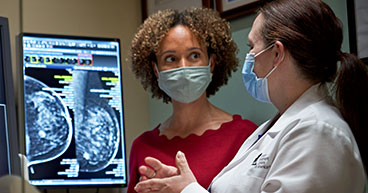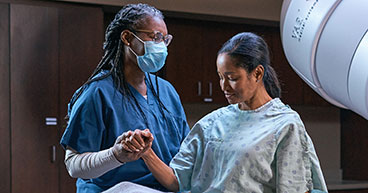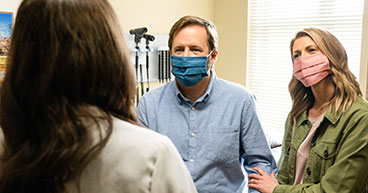


738 Posts

September 29, 2022
Six things we can learn from Katie Couric’s breast cancer diagnosisJournalist and former Today host Katie Couric has gone public with her breast cancer diagnosis, in part to encourage people to get screened.
September 28, 2022
Does pre-cancer mean I’m going to get cancer?While pre-cancerous conditions that go unchecked may eventually turn to cancer, that’s not always the case. Learn what pre-cancer means and how it affects you.

September 28, 2022
The complexities behind breast cancer’s racial disparities, and how to address themAdvancements in screening, diagnosing and treating breast cancer has not changed the fact that the disease does not affect all racial and ethnic groups equally.

September 21, 2022
When should you worry about blood in your urine?Blood in your urine may be a symptom of a serious health problem, including cancer, so it’s important to determine the cause as quickly as possible.

September 7, 2022
Seafood is an important part of a cancer patient’s diet, but so is knowing where it came fromFish is an excellent source of low-fat protein, but patients struggling with digestive issues brought on by cancer treatment may find the texture and aroma unappetizing.

August 31, 2022
HPV and throat cancer: What’s the connection?The human papillomavirus (HPV) is a leading cause of throat cancer and several other cancers and may infect as many as eight out of 10 people during their lives.

August 24, 2022
Can acid reflux cause cancer?Acid reflux may expose your esophagus, throat and mouth to stomach acid, which may lead to a more serious condition known as Barrett’s esophagus that may lead to cancer.

August 17, 2022
Monkeypox: What cancer patients need to knowCancer patients need to be vigilant about a new disease caused by a virus that has health care agencies raising red flags: monkeypox.

August 10, 2022
What’s the difference? Grading and staging allow oncologists to home in on a cancer’s characteristicsCancer staging and grading provide much of that critical data to cancer care teams as they develop a patient’s treatment plan.
Guidelines
The information contained in this blog is not intended nor implied to be a substitute for professional medical advice. Always seek the advice of your physician or other qualified health provider prior to starting any new treatment or with any questions you may have regarding a medical condition. Nothing contained in the blog is intended to be used for medical diagnosis or treatment of any illness, condition or disease.